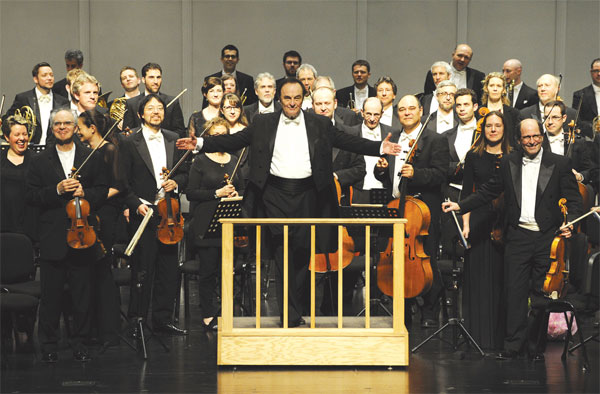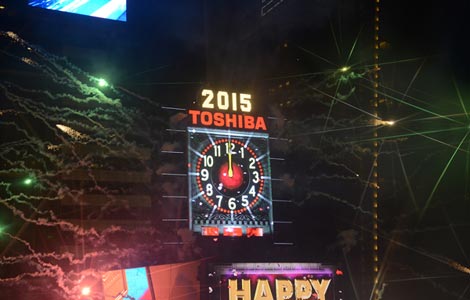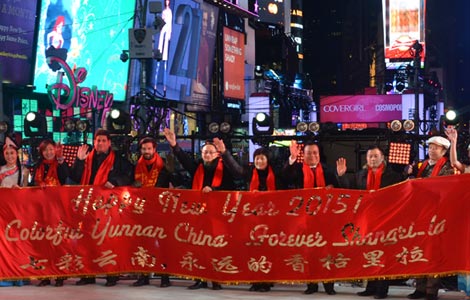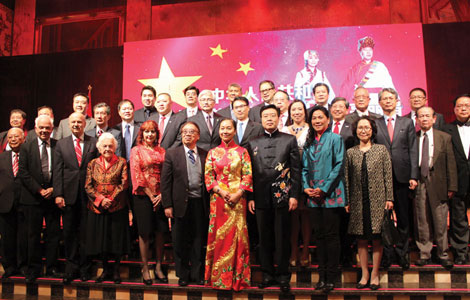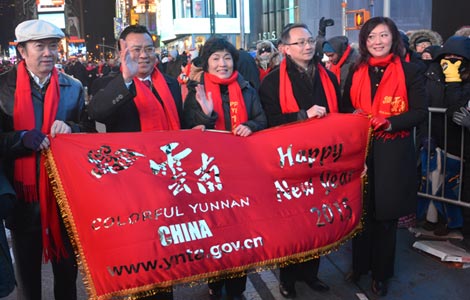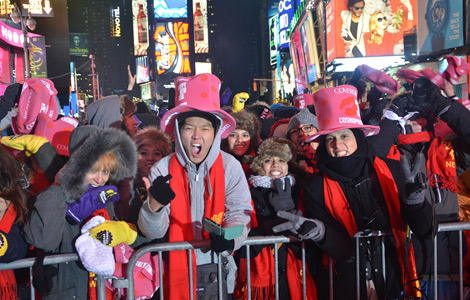Orchestra exchanges play key role
Updated: 2015-01-02 11:20
By Jack Freifelder in New York(China Daily USA)
|
||||||||
|
The Boston Symphony Orchestra led by Swiss conductor Charles Dutoit takes a bow after a performance in Guangzhou Opera House in Guangdong province in May 2014. Liang Xu / Xinhua |
One of the more under-the-radar developments in 2014 was the increasing bilateral exchange of classical music between the world's two largest economies, according to Mark Volpe, managing director with the Boston Symphony Orchestra.
"China is now really encouraging the use of Western music to embrace and learn about instruments, and that's not just lip service," Volpe told China Daily. "It's clear that the government has embraced music as something that's critical to further development, economic and otherwise.
"What's especially revealing is the number of children in China being encouraged to play instruments," he said. "When you have 50 or 60 million kids playing violin and the piano, chances are, just as a bell curve would suggest, some are going to be sensational."
In May, Volpe and the BSO toured in China and Japan with a series of seven concerts over a 10-day period, including a pair of concerts at China's National Centre for the Performing Arts in Beijing. Other cities on the trip included Guangzhou, Shanghai and Tokyo.
The trip marked the second time that the orchestra, which is in its 133rd season, toured in China, Volpe said.
"For years conductors and orchestras have tended to be Euro-centric, but I think what you're witnessing is a fundamental shift to Asia," Volpe said. "This goes far beyond the anniversary year, which is certainly noted."
The BSO became the first orchestra from the United States to visit China following the establishment of diplomatic relations in 1979.
In 1973, the Philadelphia Orchestra was invited by then US president Richard Nixon to go to China. The company's performance at Beijing's Cultural Palace of Nationalities made it the first American orchestra to ever perform in the People's Republic of China.
The Philadelphia Orchestra made a trip to China earlier this year as part of its 2014 Tour of Asia & China Residency. The tour, which began in May, included visits to a number of cities along the way, including Beijing, Changsha, Shanghai and Shenzhen.
In early November, the Philadelphia Orchestra hosted China's National Center for the Performing Arts Orchestra (NCPAO) in Philadelphia.
To commemorate the 35th anniversary of the establishment of US-China relations, China's performing arts orchestra made its first trip to North America for a series of concerts in November, making stops in Chicago, Montreal, New York, Ottawa, Philadelphia, Toronto and Washington.
Ronald Sadoff, director of New York University's department of music and performing arts professions, said, respected musical traditions like Peking Opera "aren't immediately understandable" to an American, and appreciating a Beethoven symphony also "takes time and effort".
"There is a genuine cultural interchange here, but it appears to transpire as a two-way street, with Chinese classical music coming this way and Western music going that way," he said. "This still requires exposure and knowledge of widely diverse musical styles; but the point is exposure."
Sadoff, who recently attended the inaugural Beijing International Film Music Festival, said one telling takeaway from his trip to China was the number of music schools teaching both Western and traditional Chinese instrumentation.
On Dec 17, WFMT Radio Network, a Chicago-based radio station, announced a partnership with the Shanghai East Radio Company to "enhance cultural ties between the US and China through classical music".
Starting in January, the New York Philharmonic, the Los Angeles Philharmonic and the San Francisco Symphony will have orchestral programs broadcast weekly to listeners in Shanghai.
In April, programs from the Shanghai Spring International Music Festival will be broadcast on radio stations in the United States. The event will mark the first time that Chinese ensembles will be heard live on US radio stations.
"Any Western orchestra that comes through China draws a lot of attention," said Jessica Zhou, a Beijing-born principal harpist with the BSO.
People are "very eager" to hear the orchestras play, she said, and just by going the companies "create a huge amount of excitement".
Volpe said China's tastes in classical music "will evolve" over time with more exposure to the genre.
"The BSO was in China 35 years ago," Volpe said. "There's an interest in China in Western art music. Economics are certainly a part of it and money does talk, but it goes beyond the money part.
"Now the two major economic forces are the US and China," he said, and "a logical development and extension of that is cultural exchange."
jackfreifelder@chinadailyusa.com
Most Viewed
Editor's Picks

|

|
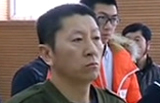
|
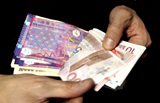
|
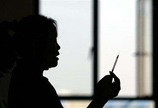
|

|
Today's Top News
Crowds mourn stampede victims
Orchestra exchanges play key role
Sino-US ties set to be modified, diplomat says
Chinese expected to travel more in 2015
Forum to elevate China-Latin America ties
U of M responds to rise in Chinese undergraduate enrollment
Adopted girl comforts kids in emergencies
Tmall Global's sales rose tenfold in 2014
US Weekly

|

|
